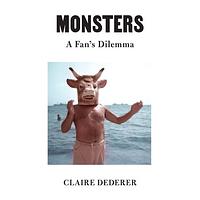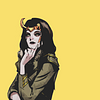Take a photo of a barcode or cover
really thought i might connect with this book or find some kind of peace with what to do with these male artists through this book but didn't. a really strong start and kind of lost steam towards the end. i guess that it's a nuanced topic and maybe the only real answer is "we don't know"
challenging
emotional
informative
reflective
sad
slow-paced
I really liked this book until about halfway, when the author started trying to equate women artists who put a child up for adoption to be the same as Woody Allen, Picasso, or Polansky who all abused women and girls. It was a bizarre turn, that made more sense as the author revealed she herself was struggling with issues as an artist-mother.
Graphic: Addiction, Alcoholism, Domestic abuse, Drug abuse, Drug use, Gun violence, Mental illness, Misogyny, Pedophilia, Physical abuse, Rape, Sexism, Sexual assault, Sexual content, Sexual violence, Abandonment, Alcohol, Pandemic/Epidemic
This was like a nothing-burger of a book for me. Maybe going into it without knowing much bit me in the ass for this. Too much memoir and not enough objective facts and research. I get it's kind of a personal subject, but I would've loved more, or any, real research from this book. Please don't read this if you want a real answer for the question of the ethics of loving horrible creators.
challenging
reflective
slow-paced
challenging
informative
inspiring
reflective
fast-paced
reflective
slow-paced
I think I expected more of an anthropological piece than a memoir, but it was definitely more the latter. I'd say it's about 50% personal memoir, 25% biographies of "monstrous" artists, and 25% actual reflection on the topic. It was somewhat meandering and disjointed even as a memoir; it didn't flow well.
There's some interesting stuff in there, the parallels and contrasts of what makes a male artist seem "monstrous" as opposed to a female artist. On the other hand, I thought it was an odd choice, if not outright cowardice, to not apply the brief chapter on J.K. Rowling into the chapters on "monstrous" women. (Also, it described her as a member of the "gender identity" movement, which is in fact the opposite of her views.) Dederer discusses whether a certain level of "monstrosity" is necessary for artistry, but in a way which doesn't align with my own experiences as a creative person.
I wasn't expecting a solid conclusion, but it somehow feels particularly inconclusive. It's less a "this is a complicated topic" and more a "oh, nevermind, it doesn't matter" at the end.
There's some interesting stuff in there, the parallels and contrasts of what makes a male artist seem "monstrous" as opposed to a female artist. On the other hand, I thought it was an odd choice, if not outright cowardice, to not apply the brief chapter on J.K. Rowling into the chapters on "monstrous" women. (Also, it described her as a member of the "gender identity" movement, which is in fact the opposite of her views.) Dederer discusses whether a certain level of "monstrosity" is necessary for artistry, but in a way which doesn't align with my own experiences as a creative person.
I wasn't expecting a solid conclusion, but it somehow feels particularly inconclusive. It's less a "this is a complicated topic" and more a "oh, nevermind, it doesn't matter" at the end.
first 2/3 were super solid, last 1/3 got a litttttle rough for me. relied heavily on unexplained & seemingly illogical conclusions that weakened the claims made. still an enjoyable and thought provoking read!
dark
informative
medium-paced
Highly recommend to anyone struggling with loving art made by artists who have done horrible things. Particularly found chapters: Roll Call, The Stain, The Fan, The Anti-Monster, Drunks, and The Beloved to be intriguing and helpful for thinking about this idea in new ways. She touches on topics such as cancel culture, power and privilege, judging sins of the past with values of the present, audiences bringing their own biographies to art, and redemption.
Dederer discusses these topics with both sensitivity for victims and vulnerability in her own experiences. Throughout all of it she gently acknowledges the walking contradiction and hypocrites that we all are as humans, and what that means for us as consumers.
Dederer discusses these topics with both sensitivity for victims and vulnerability in her own experiences. Throughout all of it she gently acknowledges the walking contradiction and hypocrites that we all are as humans, and what that means for us as consumers.
challenging
informative
reflective
slow-paced







